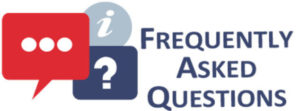FREQUENTLY ASKED QUESTIONS
 On this page, we have included information that should answer many questions that you should by now have about ARNI. Your next move should be to contact us directly at the ARNI Institute either by phone or email.
On this page, we have included information that should answer many questions that you should by now have about ARNI. Your next move should be to contact us directly at the ARNI Institute either by phone or email.
 What do I have to do to join?
What do I have to do to join?
ARNI welcomes enquiries and referrals from Consultants, G.P.s, Nurses, other Physiotherapists, Speech and Language Therapists, Occupational Therapists, Social Workers, Family Liaison Workers, Psychologists, Case Managers and Solicitors. ARNI accepts self-referrals and offers a free initial telephone consultation to find you the best solution to your individual requirements. Just call ARNI Central and we will match you with an Instructor around the country. This matching service is taken care of by our clinical referrals manager who will then be in touch with you throughout your rehabilitation time with the instructor.
Can I just start training at any time?
If you are still receiving state-given physiotherapy when you get in touch, ARNI will advise you to grab all the ‘free therapy’ that you can get, and make the most of their expertise and support. However, when there is no longer any help available then it is time to start looking for help from ARNI. Many survivors’ families like to ensure a smooth care pathway by setting up a trainer to take over from the community therapist when the allotted time is up (often 6 weeks). Call ARNI to find a trainer in your area. ARNI may liaise with your therapist if possible to ensure a smooth transition.
Do I need to contact my GP before I start?
Yes. We do ask that you obtain a doctor’s letter to highlight any contraindications to exercise training after stroke. Your Doctor may use this site to find out about ARNI if he or she wishes, or call us for any help regarding training for you. Close liaison with health and social care professionals; such as medical staff, orthotists, care staff and other therapists is essential for effective rehabilitation. ARNI communicates with other professionals as required to ensure excellent service delivery. You will also need to fill out our Application Form which contains and enhanced PAR-Q. All records are held by us in strict confidence. ARNI is registered with Data Protection (Registration No. Z1835048).
How much time do I need to commit?
The usual ARNI mode of training is a choice between one hour or an hour and a half sessions in your home, Instructor’s studio or gym area, as many times per week as you need. This is preferred over group situations for those who have suffered their stroke recently, for the residual limitations that ARNI Instructors will seek to facilitate you to tackle are different for everyone. Your ARNI trainer may also be running group classes. These are beneficial in other ways… please call ARNI Central for guidance. Instructors will give you personalised exercise plans and suggestions for improving (what to do) between sessions. These can all be backed up by a 7 DVD watch anytime guide produced for you by Dr Balchin.
Can I do Tele-rehabilitation with my Instructor?
Yes. This facility was developed in 2018 for upper limb training. Currently however, you have to be an existing client of an Certified ARNI Associate instructor to receive this, via our Dashboard.
How long does the training run for?
Once an ARNI Instructor agrees to train you, subject to positive health screen, you can do as many sessions as you like. Obviously we expect commitment, as we ourselves are working hard for you. For individuals, we would advise you to sign up for a course of 10 hourly sessions – these are cheaper than hourly sessions.
Can I join straight away?
Yes, in most cases. The majority of the service that ARNI offers is 1:1 and we can usually match you up with a trainer in your area immediately. If this is not the case, we will work with you to find a solution. ARNI Central often runs free open retraining sessions, again on a one to one basis, delivered on a voluntary basis by ARNI Associate Instructors from around the UK, at which family and friends are also encouraged to attend.
How much does it cost?
ARNI uses only only ARNI Associates (specialist qualified). They are physical training specialists and therapists. They have all agreed to train stroke survivors at their rock-bottom fees for us. Training fees vary depending on the Instructor. Across the UK, fees range from £45 to £60 per single session depending on the Instructor, and Instructors give £10 and £20 off for doing 5 and 10 rehab sessions respectively. Each session will be at least ONE HOUR.
Will my instructor be fully insured?
Yes. All our Instructors have their own comprehensive insurance covers, have professional indemnity cover and are comprehensively CRB checked. See Instructors page for information about the Instructor’s obligatory insurance. Furthermore, the ARNI Trust as a Charity is affiliated to Attend – the UK’s largest membership organisation formed to support the work of volunteers in the health and social care services.
How qualified are ARNI Instructors?
ARNI Instructors are professional trainers, therapists who own their own training/therapy businesses or therapists who are involved in clinical stroke care full or part time. Many of the trainers focus only on assisting community stroke and are (via ARNI), community functional retraining after stroke specialists. All come with their own skills, but in common the trainers will have at least REPS Level 3, the standard by which they can call themselves ‘advanced personal trainers’, as well as many related qualifications showing proficiency in physical training and patient care. They will have completed the comprehensive ARNI Institute Functional Rehabilitation & Exercise Training after Stroke Qualification which teaches them how to safely train stroke survivors. As well as further specialist CPD run during the year, often at Queen Square, UCL and the Royal Society of Medicine. Please ask specific trainers for details.
Will my medication affect the training?
This is a question for your doctor that will form part of the patient questionnaire that will be sent to you to fill out before any rehab training takes place. You are expected to highlight any known potential problems/ contraindications to training to your Instructor at the START of any training session you come to. Remember, if in doubt, safety is the number one priority. Consult your doctor and come back to training when possible.
How long after stroke can I expect results?
The answer to this depending upon your presentation, time from stroke, your rehabilitation so far and experience of your ARNI Associate Instructor and a whole host of other factors. Motivation plays a very big part. But you will see that improvements in gross motor movement can be achieved reasonably quickly working with the ARNI system. Examples are: conquering difficulties such as the inability to get down and up from the floor without any supports, regaining balance and conquering perturbation control issues, regaining gait control including control whilst turning. Training to develop cardiovascular health and developing strength has been shown to reduce weakness and speed up (or re-ignite) recovery potentials. Research has now, in 2019, revealed empirically that regaining strength has direct correlation to regaining function. ARNI has, since 2001, advised that paced and appropriate strength training is important for maximal recovery potentials. These are the ‘big fixes’. Improvements in isolated action control are typically more incremental and dependent on each individual’s starting point. For example, reduction of spasticity in the upper limb is a major focus and can be very hard to achieve consistent progress on, but we’ll teach you how to do this, with support. This type of progress is classed as the ‘small steps’. The ARNI Approach states that both the big fixes and small steps are tackled in each session – in the most appropriate and evidence-based way.
Are there any limiting factors?
Age is the average enquirer’s first concern. ARNI was initially conceived for younger people, for whom there is less in the way of adequate rehab. Younger people often want ALL OF the movement they used to have, whereas we have found that older people tend to accept a level of non-movement is going to be retained for the rest of their natural lives. Of course, this is a generalisation, but our experience has shown some truth in it. However, we have trained children at young as 6 years old and adults up to 93. Please enquire to the Institute if you are not sure. When places become very limited, preference is always given to the younger stroke survivor. ARNI has always been strictly non-racist and non-homophobic.
Will I be required to work at home?
Yes. Instructors will give you personalised exercises to support your short and long term goals. We have clients who still retain their physiotherapists – this is absolutely to be encouraged, and ARNI Instructors collaborate closely with physiotherapists as required, to provide as full a recovery strategy for you as possible. However, if a client still has a physiotherapist, it is standard ARNI good practice for an ARNI Instructor NOT to produce a training plan for the individual: the therapist’s work takes is done only, for many reasons including possible fatigue. Once the therapists have finished and the client has no more therapy, then a training plan is implemented, building on the work of the MDT as much as possible.
I’d like to give the ARNI Institute more recompense for helping me.
We do welcome reciprocal generosity! All at the ARNI Institute Central are volunteers, including the Director, Dr. Balchin, and we work hard to ensure this training and matching service works for YOU. Do be generous and donate back to the ARNI Institute if you feel we have significantly helped you and your family. Doing this will help us to help others in similar situations.
For all general enquiries relating to the Institute, please contact ARNI Institute right now on 0203 053 0111.

